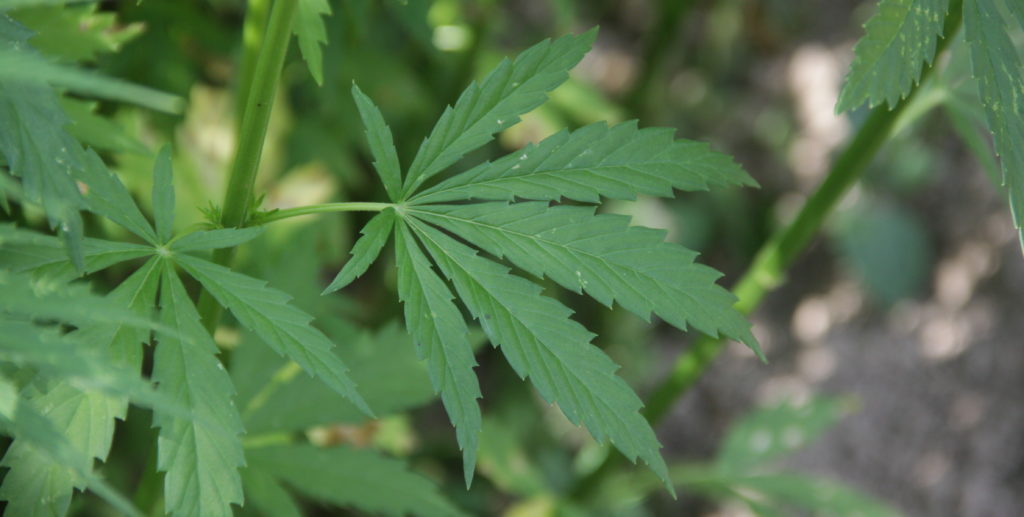
Medical marihuana is the biggest achievement of alternative medicine so far. It’s so good, that even science-oriented people are fighting for it.
If you just want to learn how to do a basic fact-check of articles in news press, you may skip to the test section.
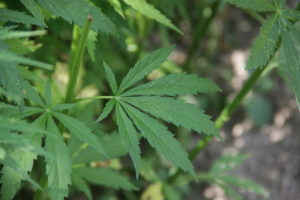
In this article I want to show a few tropes I found in medical marijuana campaign, which are a flag tropes of pseudo-medicine (so-called “alternative medicine”) marketing. I’m not against weed legalization. I’m against using sick people, who are often in such pain, they are suicidal. Making them victims lies both in wasting funds in trendy research without good results since over 40 years and in fight by people who uses sick people for their own sake – the ones who say they want to help, but their help is limited only to legalizing marijuana.
People united by press against evil law
Healing by cannabis or THC is a popular topic in the news press. Stories often goes like that: parents have sick kids. Kids are in pain and their parents has discovered that marijuana helps their kids. Police finds out about the case and they send parents (or quacks) to jail. The situation makes people enraged and they fight even more for legal marijuana. That’s just awful pseudo-scientific “alternative medicine” manipulation. Why? Let me explain.
When parents aren’t vaccinating their kids, they are horrible parents. When they give them some pseudo-medical treatment people are getting mad. Imagine it: some parents are forcing their kid with muscle problems to drink wine (which relaxes muscles). We all know that even if it helps (because it would in many cases), that’s really a bad way. After some time doctor notices it, informs the police and parents get jailed or fined. Will you protest on the street, because parents were making their kids drink alcohol instead giving proper treatment? Rather not. Yet when it comes to marijuana, it’s supposedly alright to give it to kids. This make it even worse than other pseudo-medicine procedures, because it’s socially supported, even from people who think they are against “alternative medicine”.
News articles often states that parents “tried everything”. That doesn’t mean a thing. What did they try? How many doctors they have been to? Why there’s no details in such articles? Same articles doesn’t state how dangerous is to threat somebody with drugs by amateurs. Amateurs don’t know proper dose, side-effects (especially these long time effects). Doctors are asked to comment on article and they say how marijuana is good for particular sickness. Mostly they are hacks and they don’t figure as researches, but basic, family doctors. Real doctors won’t recommend therapy which is made by amateur with drugs which didn’t pass research and proportions of substances are varying crazily. And if they would, they would pay you a lot for taking part in medical experiments.
Proofs are often anecdotal (“friend of friend knew somebody”) and non-scientific (we can’t proof something base on a few cases).
It needs to be legal, so we can heal people
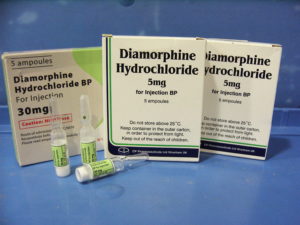
So what changes legalization of the cannabis products market? While in real medicine it’s not needed for drug to be legal, it’s the only way to sell “dietary supplements” (“alternative medicine” version of drugs). It doesn’t mean that legal marijuana is the same as “free use in supplements”, but it’s a step forward.
The victims are sick people. By making marijuana topic trendy, we made it trendy to research it. Results are “promising” since years which means we got nothing. A lot of human and cash resources is drowned in marijuana research instead research of drugs that would really help.
Drug that heals everything
Myth: marijuana is an established way to heal people.
Fact: cases differs; always check primary source; read it like a law – “promising” means “promising”, not “it works”. Same with “needs further research”.
It’s like good, old vitamin C which is said to heal everything from cold thought cancer to
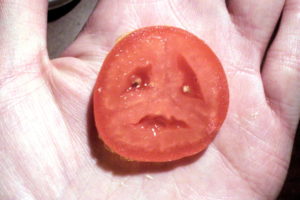
AIDS. The myth comes from misinterpretation by reporters and other amateurs the research. I don’t say “research results” by purpose, because sometimes even the topic of research is a strict statement of usability. As marihuana is trendy and that’s where the money lies, scientists are researching many possible uses. If they would check it for hair loss and the results would be negative, next day we would see article “Marijuana heals hair loss”.
Some says it’s the evil big pharmacy corporations which doesn’t want ideal pill to be released. If they are so powerful they can stop further research, why they allow it at all? There’s no conspiracy and reporters aren’t stupid. And if people are getting their knowledge that something may work from research, why they doubt it, when research says it probably doesn’t?
Doesn’t it bother you that marijuana suddenly heals everything? It doesn’t matter that it needs further research, it doesn’t matter it’s just one substance, not whole plant, it doesn’t matter it may me applicable to single phase of some rare e.g. cancer. For reporters it’s “marijuana cures cancer”.
Some passed the test, but not weed
A few days ago I’ve been reading some doctor’s words that marijuana research is in an early phase of research (lie) because such research were banned (lie). It’s not in early stage – it’s over 40 years of medicinal research and about 20 years of constant stream of papers. It’s just the results: they doesn’t click, so they start again and when it doesn’t work again, they won’t pass it, but they try again. If the reason would be research ban (it wasn’t total, just difficult and it didn’t stop main big pharmas from research), which existed for many years, what about triptans?
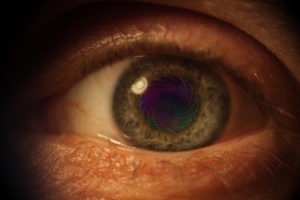
Triptans are derivative of psychedelic drugs (triptamines) which were proved to work – now they are available in every pharmacy. Apparently it’s possible to research psychedelic in modern time and sell derivatives as a medicinal drug – in some countries as OTC.
It’s worth noting how “herbal highs” were and still are made. They are made from cannabinoids which were made by scientists with hope of getting something useful. Thousands of substances which were useless – they were trash for medicine. As patenting drugs it is expensive, the ways of synthesizing it were available for everybody and “herbal high” producers made use of it. Many substances contained in these recreational drugs starts with acronym. For example JWH is for researchers group lead by John W. Huffman, HU is for Hebrew University and CP is a line of tests made by Pfizer in 70’s and 80’s. As you see, research is in progress since a long time, some derivatives of psychoactive drugs were already introduced to mass-market, but scientists can’t find a good use for marihuana.
Viral marketing
“Alternative medicine” doesn’t need patents, as they don’t need to pay for research, they don’t need spend much on marketing, because people do it for themselves. It looks like at first there was a fight for recreational use and it was bastardized by “altmed” as fight for medical use, which people see it as more noble reason.
You won’t see much cannabis-based products adverts. They advert using people. As I suspect, they already had people fighting for marijuana. Next step was to interest press with medicinal use topic. Even more people joined the fight and even without proofs they already knew marijuana works. The latter stage in very interesting for me. I observe in social services that people recommend articles, because they like it. They don’t see the fact checking – it just looks smart and sciency so they recommend it to others – strangers and mates.
Recently I’ve seen people recommending alternative medicine application which was showing which food ingredient is fine and which is not. This application wasn’t right at all – even fact of researching substance as cancerogen was a proof that it causes cancer. Yet people were recommending it, because “it’s very good”. Why? Nice icons? Because it meets expectations of paranoiacs who think food producers want to kill them?
Now compare the strength of marketing – some advert in TV with anonymous voice directed at all people, clearly oriented on profit vs. personal recommendation from mate who cares about you.
Folk science and “ecotrend”
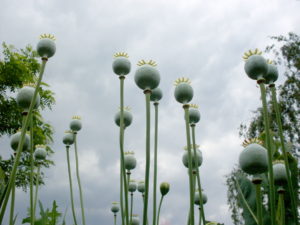
Poppies are pain-killing plant, yet we don’t use it as a final product. It’s because they contain morphine. Early phase of medicinal use was usage of opium – old times, so we couldn’t research substances well and separate the best out of it. Later morphine was used, but the side-effects were too dangerous, so scientist made much safer derivatives – we use drugs like tramadol or codeine derivatives.
The goal is to produce drug which will have as less side-effects (including psychoactivity) as possible. As the research of substance is a very long and difficult process, nobody will fund research of 1000 or more substances, just for sake of medical marijuana. At first it’s psychedelic – sick persons needs healing, not tripping. Marijuana may causes psychosis-alike effects – some say it’s worse than psychedelic bad trip. Why anybody would want to risk, when we have choice without that risk? We don’t know how marijuana is metabolized, nor which receptors it triggers. Heck, we don’t know which substances are present in weed! We are still finding substances in marijuana – after so many years. The proportion of substances in plant vary so the standardization is much more difficult.
“Alternative medicine” assumes something contrary to science and logic – unknown substances in unknown quantity are safer than single, well-designed and well-researched substance.
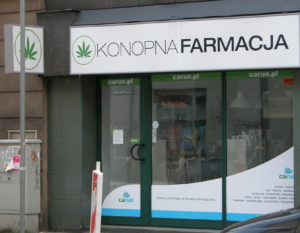
That’s why, again, legal marijuana isn’t needed, as it’s too dangerous to use in medicine – we wouldn’t know most negative outcomes, especially long-term ones. If anything will make it to the pharmacy, it will be a single substance from whole plant or more possibly some derivative. Maybe because derivative will be better or maybe because one can patent derivative and get cash. Big pharmas needs cash, so they prefer drugs which they can patent. It’s a flaw of modern times, not evilness or conspiracy. You have a business, you want to make more on it. It doesn’t imply you want to endanger somebody yet in “alternative medicine” it’s considered as a proof of evilness and the goodness of “altmed”.
If we need change of law status of medical marijuana, why they already offer products containing only some substances from marijuana? There’s more and more cannabis based products (not drugs, which needs to be proved to work) in pharmacies. For example I found pain-killing gel made based on this plant. There are even shops which offer such products. That’s just classical folk science – assuming that if one/some substances are good for pain, others from same plant will have same effect. Of course they don’t specify which substances are in their “supplements”, nor they provide proofs on their murky lists of possible uses.
Everything is perfect
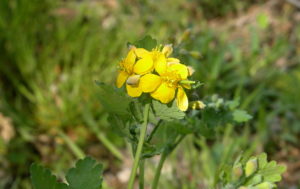
Marijuana helps with some things, but it doesn’t mean it’s a suitable drug for medicine. A glass of vodka is a wonderful muscle relaxant, even better than marijuana. Most people know there are better ways and for sure it’s not suitable to heal backache. The fact that something helps, doesn’t mean it’s not making it worse.
The greater celandine was used in folk medicine since a long time. The healers knew it can be used only for short time, because the effects of long-term use are adverse. Nowadays “alternative medicine” is using this plant as well, yet they often keep quiet about adverse effects after a prolonged use – only sometimes they give general warning, hiding the real knowledge.
That’s why even research which shows that marijuana or some substance helps in some cases isn’t enough. The bad sides must be checked as well, because it might turn out that the healing effect is greater than previous drugs, yet with very bad side-effects which makes it too dangerous.
Next time you’ll read about medical marijuana…

…please, do a test.
- Search in the internet for the source of article – it might be a gossip. I found out cases where mother healed her kids and she was giving interviews for press – the substance/drug she was telling was different in every title. One time marijuana, other time homeopathy, yet another time she said she healed kid using some aura reading services.
- Check out experts who are commenting article. Are they really experts or they just have proper degree? Check them in scientific databases – are they authors of research papers? Beware of descriptions like “John Doe, author of X”, where X might be some smart-sounding name, but it reality it could be amateur blog. Even if X would be popular and respected book, it doesn’t mean that every statement of this person is true.
- Read the article while replacing “marijuana” with “vodka” (analogy for the drink which could help in fighting some symptoms, but it’s not established as a good way). Do you still think that article is reliable? Do you think that method is good? While vodka is not marijuana, it might be helpful to fight own bias.
- Look for manipulations and emphasis without meaning (example from press article: “very sick” – where’s the border between sick and very sick?) – they are used if the real case isn’t obvious and reporters needs psychological tricks to show they are right. Such tricks can be hard to spot and elaborate. E.g. if you don’t understand some part of article, it may be on purpose. In this trick reader thinks that reporter is smarter than her/him, so s/he won’t question the rest.
- Check the balance of the article – is the second side of conflict represented well? Reporters tend to quote words from both sides of conflict, yet one of them is often seen as inhumane, wrong or not interested. For example there might be an article about kids smoking or eating marijuana, description of their pain, how they were happy with weed (no wonder), quacks commenting on wonder of marijuana. Other side might be police press office which would comment that marijuana is illegal. Police can’t do otherwise, but isn’t the the lack of different opinion of experts weird? Does it means that all scientists thinks the same or maybe reporter didn’t want to reveal everything?
- Don’t assume that reporter did a fact-check. If the gang leader had sick kids, he was earning on marijuana to make his crime zone bigger and he will get jailed, it’s in his interest to lie to public about being poor and sick. Even if article is honest, it’s just one case – strong emotionally, but that’s how it works. Long and sad article about single case is like a research with n=1 and no control group.

I miss watching your English spoken videos on YouTube. I’m actually watching your channel right now. I just wanted to make certain that your healthy and doing well. Please come back to YouTube soon!
Sincerely,
Steven